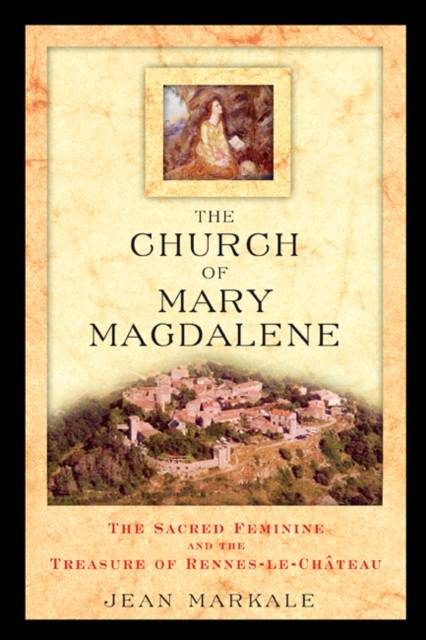
Nos liseuses Vivlio rencontrent actuellement des problèmes de synchronisation. Nous faisons tout notre possible pour résoudre ce problème le plus rapidement possible. Toutes nos excuses pour la gêne occasionnée !
- Retrait gratuit dans votre magasin Club
- 7.000.000 titres dans notre catalogue
- Payer en toute sécurité
- Toujours un magasin près de chez vous
Nos liseuses Vivlio rencontrent actuellement des problèmes de synchronisation. Nous faisons tout notre possible pour résoudre ce problème le plus rapidement possible. Toutes nos excuses pour la gêne occasionnée !
- Retrait gratuit dans votre magasin Club
- 7.000.0000 titres dans notre catalogue
- Payer en toute sécurité
- Toujours un magasin près de chez vous
The Church of Mary Magdalene
The Sacred Feminine and the Treasure of Rennes-Le-Chateau
Jean Markale
Livre broché | Anglais
28,95 €
+ 57 points
Description
An extensive examination of the religious anomalies and lost treasure of the Mary Magdalene Church in Rennes-le-Château - Looks at the connection between the Templars, Cathars, and other enigmatic groups in the history of this church and the surrounding area - Maintains that Mary Magdalene was the high priestess who anointed Jesus into his priesthood, in accordance with ancient religious tradition - Explores the role of the Sacred Feminine in early Christian Church history The small church of Rennes-le-Château, in a remote village in southern France, may well hold the key to the proof of Mary Magdalene's marriage to Jesus and the bloodline they founded. In 1885 the village of Rennes-le-Château welcomed a new priest, Abbe Saunière, for its church dedicated to Saint Mary Magdalene. Abbe Saunière ordered very strange restoration work for the church, and it is thought that he discovered something during this renovation that brought him to the attention of the power brokers of that time and made him a very rich man. Possible identifications of his discovery range from the gold pillaged from Delphi in Roman times; the treasure brought out of Jerusalem by the Templars, who had a strong presence in this area; and the missing Cathar treasure, spirited out of Montségur mere days before the fall of that fortress. Yet even more curious and compelling is this church's ambiguous portrayal of Mary Magdalene. Markale explains that the unusual depictions of Mary in the church hint at an even more archaic role performed by Mary that could shake the very foundations of the Church if it were fully understood: that of the high priestess who anoints the priest king into his spiritual duties.
Spécifications
Parties prenantes
- Auteur(s) :
- Editeur:
Contenu
- Nombre de pages :
- 328
- Langue:
- Anglais
Caractéristiques
- EAN:
- 9780892811991
- Date de parution :
- 09-06-04
- Format:
- Livre broché
- Format numérique:
- Trade paperback (VS)
- Dimensions :
- 153 mm x 230 mm
- Poids :
- 539 g







